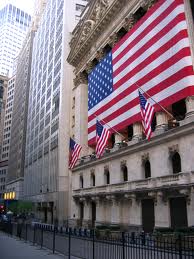Technology giant IBM has announced a rise in profits over the last three months, despite unfavourable currency movements.
The company’s success is often seen as a good indicator of health in the technology sector, as it recorded a net profit of $3.88 billion over the three months ending in June. This marks a 6% increase on profits at the same time last year and comes in a period in which profits also took a $1 billion hit on currency movements.
This reflects general expectations at IBM, which believes that full year profits will also be higher than previously expected. It is not the only financial entity expecting great things; hedge fund Managers such as Philip Falcone’s Harbinger Capital and Moore Capital Management founded by Louis Bacon are also predicting a rise in profit this year.
IBM’s profit results have instilled greater confidence in a sector that has been struggling in recent months. Analysts were concerned about a drop in investment in technology firms from the wider economy and the effect that this may have on potential profit margins. These fears were partially realised, as the company’s revenue dropped by around 3% to $25.78 billion. However, IBM were able to beat their expectations for earning per share, delivering value to investors and shareholders and ensuring their stock continues to work hard in the markets.
The weak economic conditions in developed markets has made it a difficult period for IBM, which would have struggled if not for an excellent performance from its global services unit. Despite these difficult conditions, emphasis has been placed on the success of IBM’s resilient business model by top executives. This attitude was recognised by analyst Chris Gartner, who was surprised that “they didn’t talk more about the macroeconomic cycle”; he believed that this indicated that the company was positioning itself for greatly increased profits once economic conditions began to improve.
The importance of currency shifts was once again at the forefront of news concerning profits, as without their negative impact, IBM believe their software department would have witnessed a sales growth of 4 per cent. This would have helped contribute to an overall growth of 1% for the company.
The services department, to which much of the recent success has been attributed, has made a concerted effort to push through much of the remedial work it had promised on under-performing service contracts. This seems to have made a great deal of difference, as the division as a whole accounted for 57% of IBM’s revenue during this period.
The news concerning IBM’s financial activity comes on the back of a number of great publicity coups, including the creation of the world’s fastest computer in the Sequoia. The “fastest computer” title is one that it has strived to have for two years. The win reflects their interest in the capability of its microprocessors, which aim to replicate the way in which the human brain operates.
Even in demanding economic conditions, there is no doubt that IBM continues to act as a beacon for the rest of the technology industry, maintaining their position as leaders of the sector. As the company continues to position itself to take advantage of improving world markets, expectations are that they will continue to improve on the results seen over the difficult last few years.


